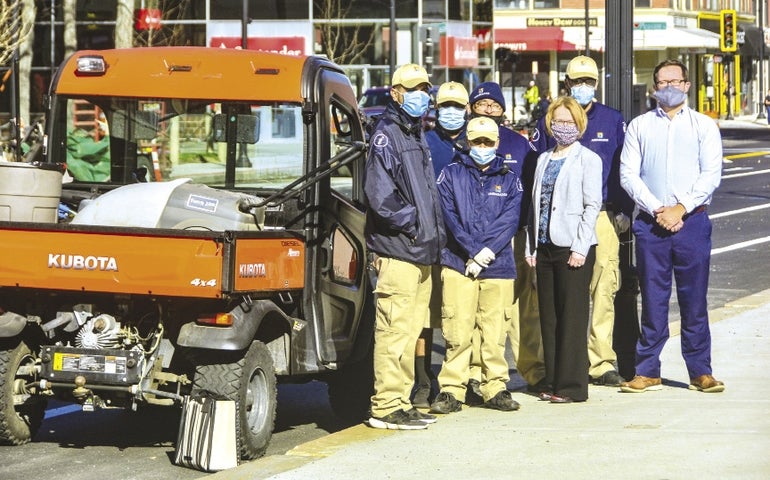In Worcester, a district still in its infancy was forced to abruptly shift from seeking a place-making consultant to helping to provide resources and advocacy for neighborhood stores.
Get Instant Access to This Article
Subscribe to Worcester Business Journal and get immediate access to all of our subscriber-only content and much more.
- Critical Central Massachusetts business news updated daily.
- Immediate access to all subscriber-only content on our website.
- Bi-weekly print or digital editions of our award-winning publication.
- Special bonus issues like the WBJ Book of Lists.
- Exclusive ticket prize draws for our in-person events.
Click here to purchase a paywall bypass link for this article.
They’re scenes leaders of any dense neighborhood would want: Packs of people dining out together, walking along sidewalks, or shopping.
These days, the coronavirus pandemic has made those activities all but impossible. That has formed an especially difficult challenge for business improvement districts in downtown Worcester and Hudson, whose missions are to bring in people for dining, shopping, and events and to make the neighborhood a lively one.
In Worcester, a district still in its infancy was forced to abruptly shift from seeking a place-making consultant to helping to provide resources and advocacy for neighborhood stores.
“We really shifted our focus,” said Evelyn Darling, the executive director of the Downtown Worcester Business Improvement District. “Our focus became advocacy.”
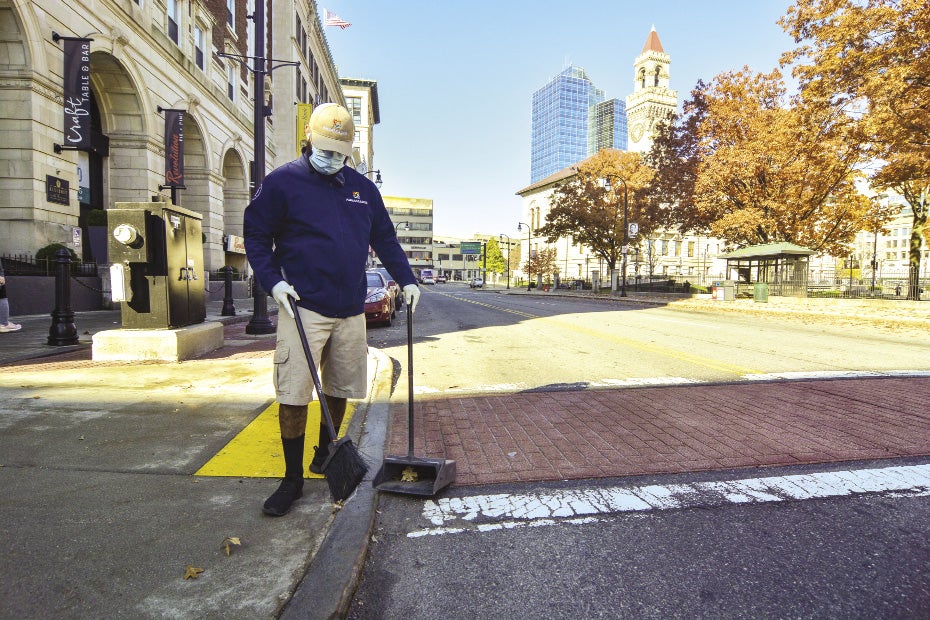
In Hudson, the district hired a certified public accountant who’s been made available for use by any businesses in the district needing help figuring out financials or government aid during the pandemic.
Hopes for lively neighborhoods have given way to a more sobering task of making sure enough businesses stay in operation during a pandemic that’s crushed restaurants and stores.
“For as long as we need to, that’s our focus,” said Richard Braga, the administrator of Hudson’s district.
Clean takes on new meaning
The Hudson and Worcester districts are two of a group of about 10 statewide, including others in Amherst, Boston, Hyannis and Springfield.
In each case, the districts take small surcharges based on properties’ assessed values, and use the revenue to benefit the district – typically for marketing, beautification and maintenance, arts and cultural programming, or safety and hospitality initiatives.
The Worcester district, which collects about $950,000 in revenue through special tax collections each year, was envisioned as an initiative to help host events and bring crowds to the neighborhood.
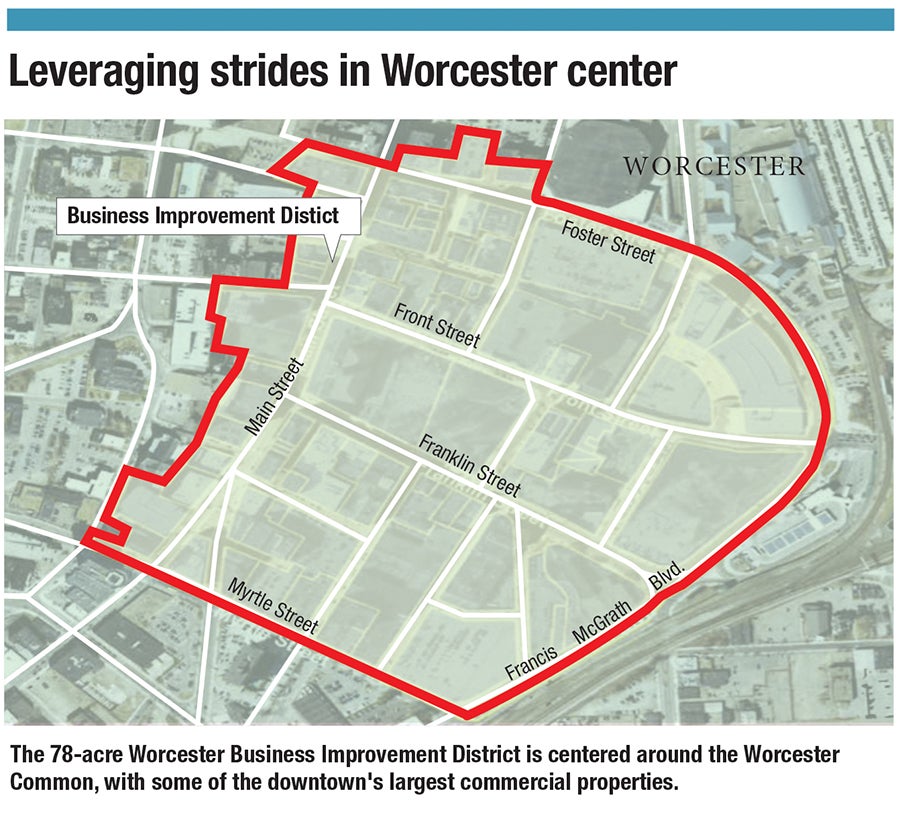
The 78-acre district, which is centered around Worcester Common, was operating for less than a year before the pandemic hit. Darling was hired in April 2019, and much of the first year was spent surveying business needs, creating branding and hiring ambassadors, whose duties would be largely to keep the neighborhood clean – a priority made clear in those surveys.
Cleanliness took on a new meaning with the pandemic.
Ambassadors, as the crew members are called, not only hauled away more than 4,900 pounds of trash and erased 175 instances of graffiti in the span of three months ending in September, they wiped down more than 3,400 surfaces, including door handles and push buttons for crosswalks.
“People’s desire for cleanliness and safety, that’s the big one certainly from our members but also from the public,” Darling said. “That’s something that we see in survey after survey.”
Events have been difficult to hold, but there have been some, including Jazz at Sunset outside the Hanover Theatre, with people wearing masks and spaced safely apart, and a drive-in movie showing in the McGrath/Worcester Public Library parking lot.
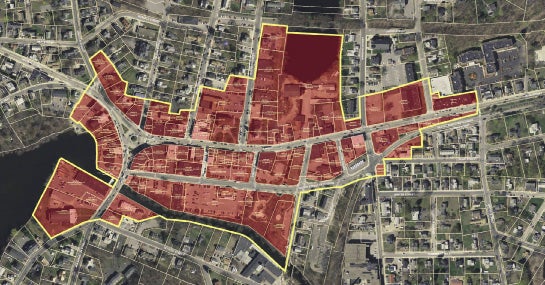
The pandemic has challenged the viability of nearly any restaurant or store, and has led to quieter street scenes in places like downtown Worcester.
Fewer office workers show up each weekday at Mercantile Center, for example, and one restaurant just across the street, Shangri-La, has closed permanently. Across Worcester Common, four restaurants at the Grid District are closed at least through the winter: The Worcester Beer Garden, Franklin Street Fare, Revolution Pie + Pint, and Craft Table & Bar.
Those closures, at least temporary in nature, add to a broader issue for the neighborhood of vacant storefronts, particularly in key locations, including major chains that left before the pandemic: a former 7-Eleven at Main and Franklin streets and a former Honey Dew Donuts at Main and Pleasant streets.
“It’s definitely a challenge, and Worcester’s in no means alone in that,” Darling said.
Retail trends aren’t entirely in the wrong direction. The restaurant Chashu Ramen + Izakaya opened on Franklin Street in September, and plans remain for an opening next year for a 500-seat, two-story restaurant at Mercantile Center from Boston’s Broadway Hospitality Group.
Other vacant storefronts are being turned temporarily into art. Window art displays were added this fall to vacant storefronts at 554 Main St. across from the Hanover Theater. Once the pandemic lifts, the district has plans to do more so-called placemaking: improving the design of public spaces and giving people a better sense of where they are and where they’re going.
“We definitely want people, when they come into the BID district, to be like, ‘Aha, this is downtown,’” Darling said.
From arts fests to financial guidance
Hudson’s district, without as many offices and residents as downtown Worcester, is more dependent on a dining scene, including the sibling establishments Rail Trail Flatbread Co., New City Microcreamery and Less Than Greater Than.
They’ve been joined in the past two years by a second outpost of Marlborough’s Welly’s and Ground Effect Brewing. But a planned Mexican restaurant just west of Felton Street on Main Street, called Conico, fell through, and in June, Sofia Ristorante closed.
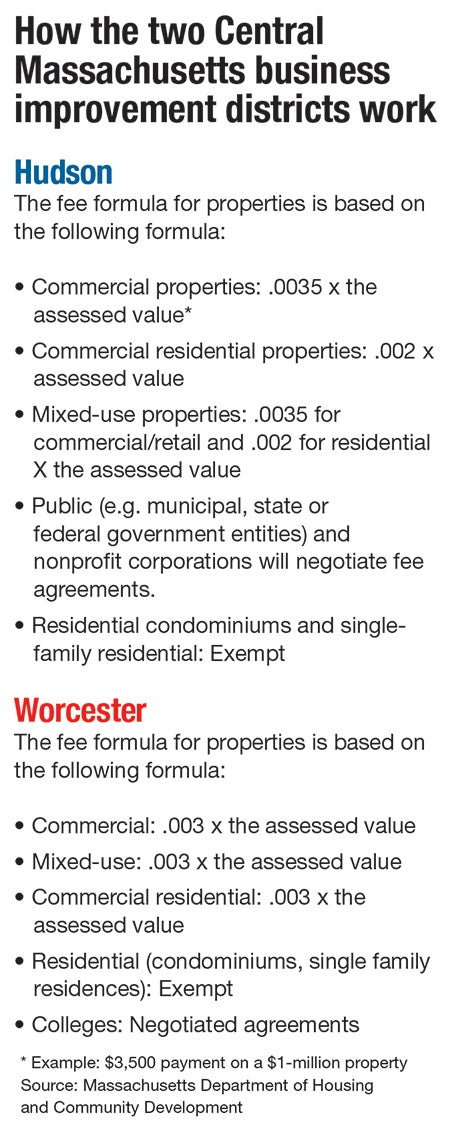
The Hudson Downtown Business Improvement District came as a result of strides the neighborhood already made with Rail Trail, Medusa Brewing Co. and others. The district started in 2018, held spring arts festivals, and last year helped throw the first Taste of Hudson food festival.
A relative lack of density compared to office workers in places like Boston, Worcester or Springfield has worked a bit to Hudson’s advantage during the pandemic. Expanded sidewalk space as part of previously planned street improvements have given Main Street restaurants more space for outdoor dining.
“We’re faring better than others in some cases,” Braga said.
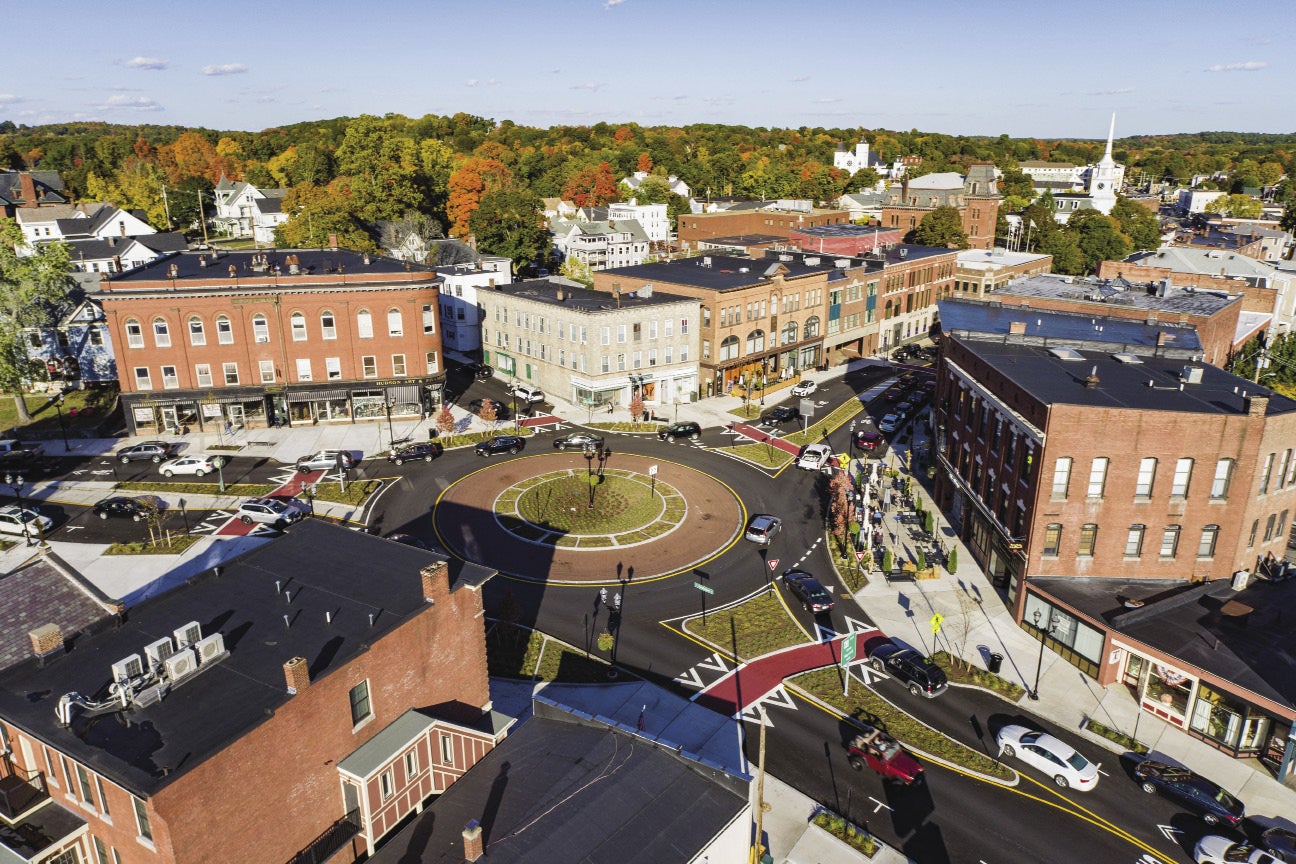
Still, the district elected to hire an accountant to work with neighborhood businesses to help figure out finances, with roughly 70 of the 85 property owners and tenants using the service.
District leaders have even acted as a real estate agent of sorts. Paisley, a clothing boutique in the Hastings Building on Main Street, ended up moving to a storefront down the street that was a better fit, Braga said. A dry cleaner then went in its place, and a gym is renting where a karate studio once was.
Old priorities were installing benches, planting flowers or cleaning up trash.
“All things that don’t mean much if you don’t have businesses there,” Braga said.
Instead, the district is going on the offensive: working to match vacancies with potential tenants, and launching a grant program to give one recipient $500 a month in rent for a year.
“I’m confident downtown will bounce back to a new normal,” Braga said.
